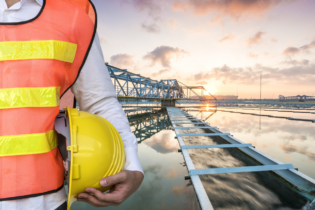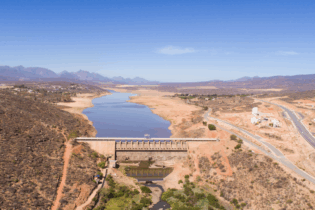It’s a truism that in South Africa, we have some of the most progressive legislation in the world but that those laws lack enforcement. Stakeholders from government, the private sector and NGO’s want to bridge this gap one of the biggest factors preventing this is a lack of information.
Environmental degradation is visible across South Africa; in the country’s rivers and streams, in the air surrounding many industrial sites and from the pollution that collects along river beds, coastlines and illegal dumps. In spite of this bleak picture, there are shining examples of industries where self-regulation and an awareness of industry-specific anti-pollution interventions are making a difference. Recycling effort For example, the regulatory body for the plastics industry, Plastics|SA recently conducted its annual Plastics Recycling Survey, where it was found that, “A total of 1 400 000 tons of plastics from domestic production and imported materials were converted in South Africa in 2014.” Likewise, Raj Lochan, the CEO of the ROSE Foundation – an industry body promoting oil recycling –has stated, “The total volume of potentially recoverable oil is about 120 to 140 million litres per annum. This represents about 50% of the new lubricating oil sold in South Africa. The recovery rate by all collectors in South Africa is about 70% which compares favourably with Canada, USA and Australia.” However, good news stories such as these are few and far between, and far more needs to be done. The Minister of Environmental Affairs, Edna Molewa, recently pointed out that South Africa has a “throwaway culture,” siting CSIR statistics that only 10% of domestic waste is recycled, wasting potentially R17-billion worth of reusable resources per year. The national effort for a cleaner country is struggling to build momentum. Factors that exacerbate the problem include littering, industrial pollution and municipal sites like wastewater treatment plants and landfills which do not meet government’s own minimum operational requirements. The time has come to act decisively to put a stop to the continued degradation of our environment. Environmental Crimes ConferenceThe Fourth Annual Environmental Crimes Conference, taking place at the Indaba Hotel in Fourways, Johannesburg on 9 and 10 September this year, focusses on the key issues of compliance, enforcement and prosecution. These issues require greater attention so that implementing authorities and legal mechanisms can be put in place for better national environmental protection.
Also participating in these discussions will be heads of self-regulating industry bodies like Douw Steyn, Sustainability Director for Plastics|SA, who comments, “I will be participating at the event to share information about our annual Plastics Recycling Survey, explain how we’ve achieved the success we have in our industry and hopefully provide other sectors with a positive model for their own regulatory efforts.” Intervention strategy Some of South Africa’s laws governing environmental protection include the National Water Act (36 of 1998), the National Environmental Management: Waste Act 59 of 2008 and the National Environmental Management: Air Quality Act 39 of 2004. These laws are rooted in the “polluter pays” principal, determining that those responsible for environmental impacts must pay. But even large multinationals can’t or won’t pay to clean up their act and therein lays the problem – breeding corruption and the notion that dishonest corporates can buy their way out of their responsibilities. This status quo has gone on for too long and the time has come for government departments to interact with one another, the private sector, regulatory and non-governmental agencies to ensure that laws are relevant, enforceable and that fines and imprisonment raises enough of a threat to properly function as a deterrent. In addition, new laws passed within the last year are not yet well understood, which may cause costly project delays and administrative confusion which is not the aim Impact Assessment and the National Pricing Framework at all. Some of the topics tabled for discussion at the Environmental Crimes Conference tackling these very problems include:- Reporting requirements in terms of the National Environmental Management: Air Quality Act 39 of 2004
- Enforcement within the Regulatory Framework – through change management
- Escalating environmental enforcement through strengthening collaboration between key government departments
- Evaluating the quality of selected Environmental Impact Assessments for effective decision-making processes
- Emerging legal trends in inclusive green economy
- Discussing INTERPOL’s tools and services manifested both regionally and globally
- Zero plastics to landfill 2030
- Safeguarding the environment through strong monitoring and prosecution







